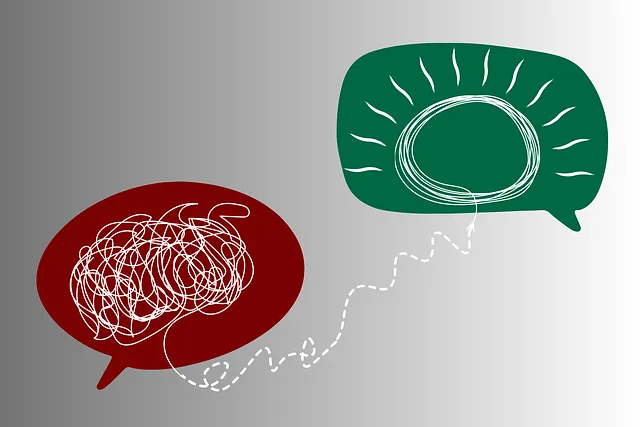Crisis Intervention Teams (CITs), rigorously trained by Kaiser Permanente Behavioral Health Center in Superior, are a vital component of mental healthcare. The program focuses on risk assessment, de-escalation, and tailored interventions for diverse populations, with a priority on burnout prevention. Through innovative simulations and real-life scenarios, the center equips teams with practical skills to manage complex emotional crises effectively. Integrating best practices, the Superior CIT training combines theoretical knowledge with hands-on experience, fostering resilience and compassion in crisis responders while enhancing patient outcomes at Kaiser Permanente behavioral health centers.
“Crisis intervention teams (CITs) play a pivotal role in mental health care, providing immediate support during crises. This article delves into the significance of CIT training programs, highlighting their impact on community well-being. We explore the innovative practices at the Kaiser Permanente Behavioral Health Center, serving as a model for effective CIT training. By examining key elements and real-world implementations, we uncover strategies to enhance crisis response skills, ensuring communities are better equipped to navigate mental health emergencies. Discover how superior training programs can lead to more effective, compassionate, and efficient crisis intervention.”
- Understanding Crisis Intervention Teams: A Vital Component of Mental Health Care
- Kaiser Permanente Behavioral Health Center: A Model for Effective Training
- Key Elements of Superior Crisis Intervention Team Training Programs
- Implementing and Evaluating the Impact of Crisis Response Skills in Real-World Scenarios
Understanding Crisis Intervention Teams: A Vital Component of Mental Health Care

Crisis Intervention Teams (CITs) are a vital component of mental health care systems, particularly in settings like Kaiser Permanente behavioral health centers. These specialized teams consist of healthcare professionals who are trained to provide immediate and effective support to individuals experiencing severe emotional crises. By integrating CITs into the fabric of mental health services, facilities such as Superior-based Kaiser Permanente can enhance their ability to handle complex cases and improve patient outcomes.
The Mental Health Education Programs Design for CIT training focuses on equipping team members with the knowledge and skills to assess risks accurately, de-escalate situations, and provide crisis intervention strategies tailored to diverse populations. Burnout prevention is also a key aspect, as CIT members often work under high-pressure conditions. Moreover, risk assessment for mental health professionals plays a crucial role in ensuring the safety of both patients and caregivers, fostering a supportive environment that prevents harm and promotes recovery.
Kaiser Permanente Behavioral Health Center: A Model for Effective Training

The Kaiser Permanente Behavioral Health Center stands as a beacon of excellence in crisis intervention training programs. Their approach combines robust academic instruction with practical, hands-on experience, ensuring that participants gain a deep understanding of mental wellness coaching techniques and emotional intelligence. The center’s curriculum is meticulously designed to facilitate not just knowledge transfer but also the development of essential skills required for effective crisis intervention.
Through innovative simulations and real-life scenario training, Kaiser Permanente equips its trainees with the tools needed to navigate complex emotional healing processes. This immersive learning environment allows future crisis responders to practice their abilities in a safe space, enhancing their confidence and preparedness when facing actual crises. The center’s reputation for superior training reflects its commitment to fostering a culture of care and resilience within the mental health community.
Key Elements of Superior Crisis Intervention Team Training Programs

Superior crisis intervention team training programs are characterized by a multifaceted approach that combines robust theoretical knowledge with practical skills. These programs prioritize Kaiser Permanente behavioral health center best practices, integrating Compassion Cultivation Practices to foster empathetic connections with individuals in crisis. Participants are equipped with evidence-based techniques for de-escalation and trauma support services, enhancing their ability to manage high-stress situations effectively.
The curriculum also emphasizes mental health awareness, ensuring that team members understand the complex interplay between trauma and mental health disorders. Through interactive simulations and role-play scenarios, trainees gain hands-on experience in applying these practices in real-world settings. This immersive training enables crisis intervention teams to respond with resilience, compassion, and a deep understanding of the unique needs of those experiencing crises.
Implementing and Evaluating the Impact of Crisis Response Skills in Real-World Scenarios

Implementing crisis intervention skills in real-world scenarios is a pivotal aspect of evaluating their effectiveness. Kaiser Permanente behavioral health centers play a crucial role in this process by providing environments where trainees can apply what they’ve learned in simulated or actual crisis situations. These practical exercises allow for an insightful analysis of the impact of crisis response methods, such as Stress Reduction Techniques and Mental Health Policy Analysis and Advocacy. By immersing participants in diverse scenarios, trainers can gauge the team’s ability to follow Crisis Intervention Guidance, adapt to unexpected challenges, and ultimately enhance patient outcomes.
The evaluation process involves assessing the team’s performance using standardized metrics and debriefing sessions. This feedback loop is essential for refining training programs and ensuring that the skills acquired translate into superior crisis management in real-life settings. Through continuous improvement based on these evaluations, Kaiser Permanente behavioral health centers can maintain high standards of care and foster a culture of resilience among their staff.
Crisis intervention team (CIT) training programs, as exemplified by the successful model at the Kaiser Permanente Behavioral Health Center, are essential components of modern mental health care. By focusing on key elements such as practical scenarios, evidence-based practices, and continuous evaluation, these programs empower teams to effectively navigate and resolve crises. The impact of superior CIT training extends beyond the training room, enhancing real-world crisis response skills that ultimately improve patient outcomes and community safety.






